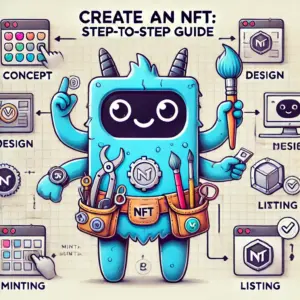Non-fungible tokens (NFTs) have revolutionized the digital landscape, transforming art, collectibles, and even real estate into unique, verifiable assets on the blockchain. Amidst this burgeoning ecosystem, understanding the tax implications of owning and trading NFTs has become crucial for individuals and businesses alike.
While the IRS has not yet issued specific guidance on NFT taxation, existing regulations and practices provide a framework for understanding how these digital assets are treated from a tax perspective. This comprehensive guide delves into the nuances of NFT taxation, equipping you with the knowledge to make informed decisions and navigate tax obligations effectively.
NFTs: A New Realm of Taxation
NFTs, unlike cryptocurrencies, represent unique digital assets rather than fungible tokens. This distinction has implications for how they are taxed. The IRS has historically treated collectibles, such as rare stamps or coins, as non-capital assets, subject to higher capital gains tax rates. However, the agency has not explicitly categorized NFTs as collectibles, leaving room for interpretation.
Despite this lack of clear guidance, there are several reasons to believe that NFTs will likely fall under the category of collectibles for tax purposes. First, NFTs share many similarities with collectibles, such as their unique characteristics and perceived scarcity. Additionally, the IRS has a history of applying similar tax treatment to new asset classes as they emerge.
Capital Gains and Income Taxes: The Two Pillars of NFT Taxation
NFT transactions can trigger two types of tax events: capital gains and income taxes. Capital gains taxes apply when you sell an NFT for a profit, measured as the difference between the sale price and your original purchase price. The length of time you hold the NFT determines the capital gains tax rate applied.
For NFTs held for one year or less, short-term capital gains rates apply, which are typically taxed at your ordinary income tax rate. For NFTs held for more than one year, long-term capital gains rates apply, which are typically lower than ordinary income tax rates.
Income taxes, on the other hand, apply when you earn profits from activities related to NFTs. This includes creating and selling NFTs, as well as earning royalties from NFT licenses or usage. Income from these activities is typically taxed at your ordinary income tax rate.
NFT Creators: Determining the Tax Treatment of NFT Sales
NFT creators face a unique set of tax considerations. If you create and sell NFTs as part of your business, the profits from these sales are considered business income and are subject to self-employment taxes in addition to regular income taxes.
However, if you create NFTs as a hobby, the profits are not considered business income and are not subject to self-employment taxes. However, you may still need to report hobby income on your tax return.
Keeping Records and Reporting NFT Transactions
To ensure accurate tax reporting, it is crucial to maintain thorough records of your NFT transactions. This includes keeping track of your purchase prices, sale prices, and any related expenses. You should also keep records of your NFT creations and any income generated from them.
When filing your taxes, report your NFT transactions on Form 8949, which is used to track capital gains and losses from the sale of all types of assets. You will also need to report any income from NFT-related activities on your Form 1040.
Seeking Professional Guidance: The Safest Path Forward
The rapidly evolving landscape of NFTs and the complexities of their taxation make seeking professional guidance from a tax advisor highly recommended. A qualified tax professional can assess your specific circumstances, provide personalized advice, and ensure that you are compliant with all applicable tax laws.
Conclusion
As the NFT ecosystem continues to grow and mature, the tax implications of owning and trading these digital assets are likely to become more refined and defined. By understanding the current tax landscape and seeking professional guidance, you can navigate the complexities of NFT taxation and make informed decisions that align with your financial goals.






